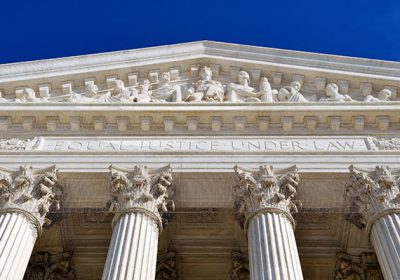Olsson v. Board of Higher Ed.
49 N.Y.2d 408
Court of Appeals
Decided: February 20, 1980
ISSUE
Whether a student, through an Article 78 Petition, may seek the court’s intervention in a college or university’s decision to withhold a diploma from a student, where the decision is based on academic reasons.
A Student’s Article 78 Petition To Challenge University Decision Is Limited Where Decision is of an Academic Nature.
HOLDING
 The Court of Appeals held that in Article 78 proceedings, courts generally defer to a University’s academic decision, where the determination was made on a good faith basis and was not arbitrary or irrational.
The Court of Appeals held that in Article 78 proceedings, courts generally defer to a University’s academic decision, where the determination was made on a good faith basis and was not arbitrary or irrational.
FACTS
Article 78 Petitioner Olsson was nearing the end of his master’s degree program when he elected to take a comprehensive exam as an alternative for submitting a thesis. Due to a professor’s misstatement, Olsson misunderstood the requirements of the exam and ended up receiving a failing grade. Thereafter, Olsson petition the academic appeals committee for reconsideration of his grade in light of the misunderstanding. The committee declined to give Olsson a passing grade but did offer for Olsson to retake the exam.
After declining the committee’s offer, Olsson filed and Article 78 petition, claiming he was entitled to his diploma because, according to his professor’s mistaken instruction, he had “passed” the exam. The trial court and the Appellate Division both accepted the arguments set forth in Olsson’s Article 78 petition and order the college to award Olsson his diploma. The college then appealed to the Court of Appeals.
ANALYSIS
Under New York’s CPLR Article 78, New York courts have long been reluctant to intervene in a college or university’s decision when that decision involves academic standards. Academic decisions are usually left in the hands of educational institutions because if academic determinations were consistently subject to judicial intervention, society’s confidence in the institutions’ qualifications would be seriously undermined.
There are, of course, instances where court intervention in academic decisions is necessary and a petitioner’s Article 78 arguments are warranted. For example, if a school exercised its discretion arbitrarily or irrationally, the judicial scrutiny is merited. In this case, however, the Court held the college “amply fulfilled its obligation to act in good faith” by offering the student an opportunity to retake the exam.
Thus, where a university’s decision is based on academic standards and was made in good faith, judicial intervention is rarely warranted. It is notable that, while the Court applies the good faith rule to decisions involving academic decisions (i.e. failing grade or courses), decisions unrelated to academia require a higher standard of scrutiny as set forth in Tedeschi v. Wagner College,

